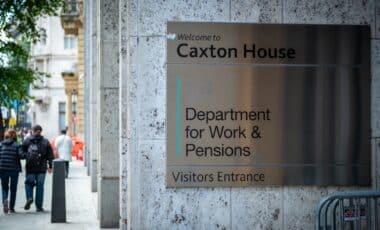With plans to send out more than 60,000 migration letters per month beginning in February 2025, the Department for Work and Pensions (DWP) is stepping up efforts to move households from legacy benefits to Universal Credit. The action is a component of a larger plan to simplify the UK‘s welfare system and help people find work and financial security.
Alongside this expedited schedule, there has been a major increase in money to assist individuals impacted. Claimants are advised to take immediate action to prevent payment interruptions while legacy benefits like Housing Benefit and Employment and Support Allowance (ESA) are being phased out.
DWP : Supporting Vulnerable Households During the Transition
The DWP’s focus on streamlining its benefits system comes as part of a major modernisation initiative, aiming to consolidate multiple benefits into Universal Credit. Claimants receiving income-related ESA and Tax Credits are among the primary groups being targeted for this transition. Notices sent out will give recipients three months to apply for Universal Credit before their existing payments are discontinued.
The DWP has also set aside an extra £15 million for the “Help to Claim“ service to assist households that are at risk during this procedure. The service, which is provided by Citizens Advice and Citizens Advice Scotland, provides claimants with free, unbiased guidance to aid them through their transition.
The program has helped more than a million people since it started in 2019 by offering advice on eligibility, necessary paperwork, and application processes. By March 2026, two years ahead of schedule, the effort is anticipated to help over 800,000 people make the transition with these payments.
Dame Clare Moriarty, Chief Executive of Citizens Advice, emphasized the importance of this support: “We make our service as accessible as possible, offering phone, chat and British Sign Language options, so we’re there for people as they move over. This funding boost is credit to the vital support our advisers provide and means we’ll be able to help even more people make their first application.”
Tackling Employment and Financial Instability
In addition to the migration notices, the DWP is introducing new reforms to address long-term unemployment and economic inactivity. A £240 million investment from the Get Britain Working White Paper will fund initiatives aimed at connecting jobseekers with employers and integrating work and health services. Key elements include:
- Local work, health, and skills plans, led by regional mayors, to address economic inactivity.
- A “Youth Guarantee” offering young people opportunities for employment or education.
- Comprehensive overhaul of Jobcentres to enhance support for those struggling to enter or remain in the workforce.
Minister for Social Security and Disability, Sir Stephen Timms, stressed the significance of these reforms: “The biggest reforms to employment support for a generation will also ensure more people get the help they need to get into work and on at work, by overhauling Jobcentres, tackling inactivity with local work, health and skills plans, and delivering a Youth Guarantee.”









